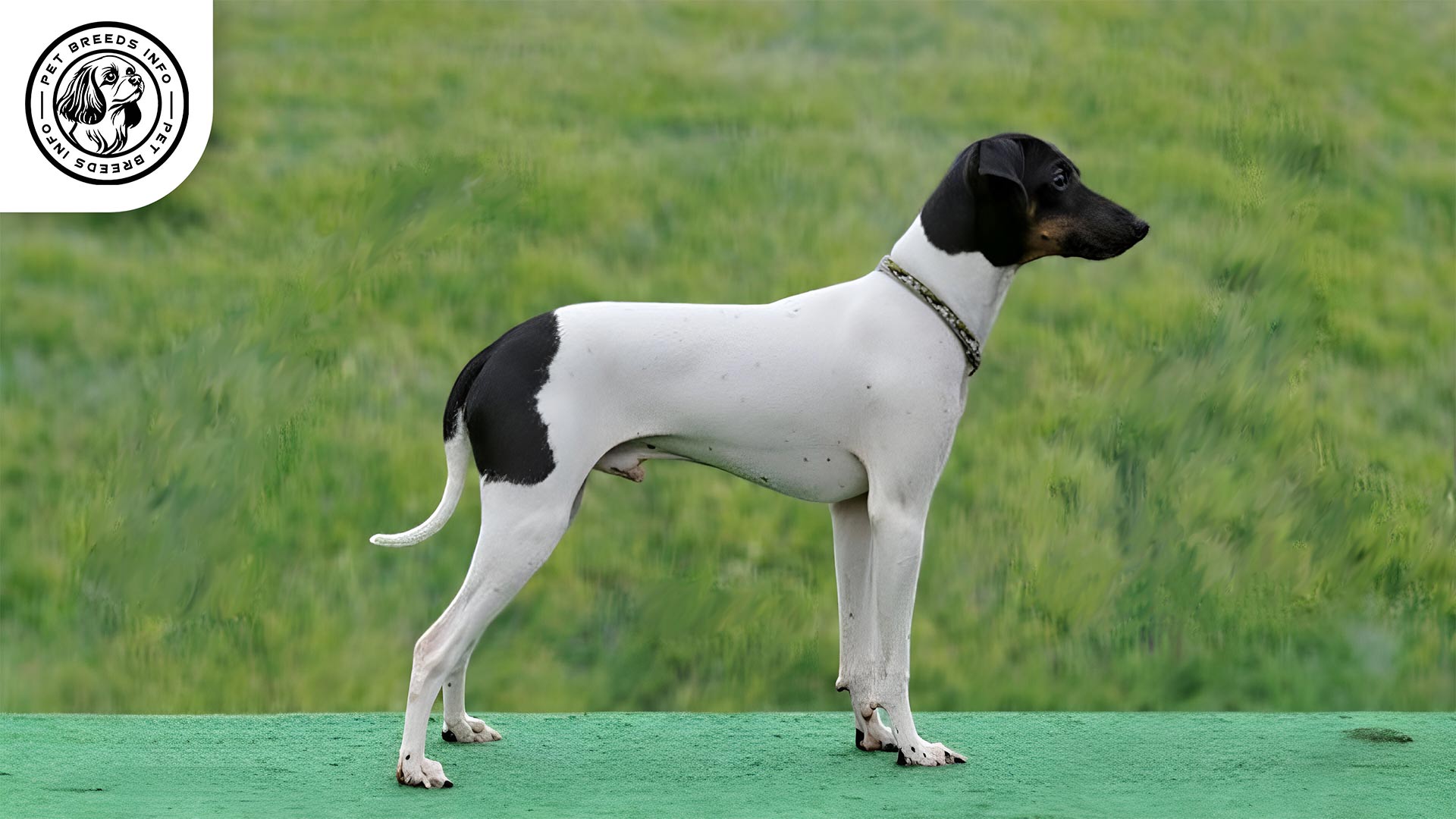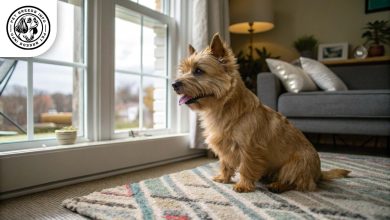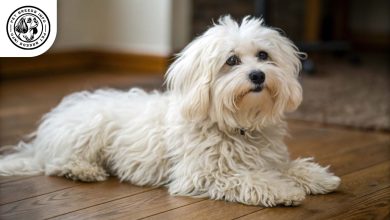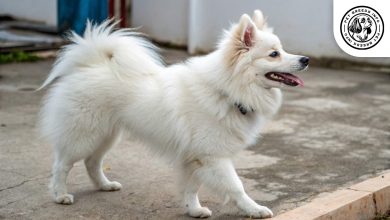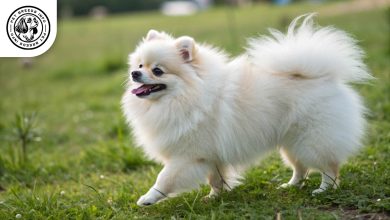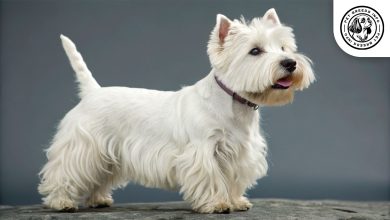Japanese Terrier Dog Breed: Size, Price & Personality
General Introduction of the Breed
The Japanese Terrier, also known as the Nihon Teria (日本テリア), is a small yet lively dog breed originating from Japan. Developed in the early 20th century, this breed was a result of crossbreeding between English Fox Terriers and smaller native Japanese dogs. Initially bred as a companion animal, the Japanese Terrier remains a rare breed, primarily found within Japan.
Table of Contents
| Weight | 5-9 lbs (2.3-4 kg) |
| Lifespan | 12-15 years |
| Diet | High-quality kibble, wet food, or raw diet |
| Care | Minimal grooming, sensitive to cold, needs daily activity |
| Health | Prone to patellar luxation, skin allergies |
| Color | White body with black or tan head |
| Nature | Intelligent, affectionate, energetic |
| Price | $800-$1,500 |
Physical Characteristics
The Japanese Terrier is a compact and elegant small-sized breed. Males and females typically stand between 8 to 13 inches (20 to 33 cm) in height and weigh between 5 to 9 pounds (2.3 to 4 kg). Their coat is short, smooth, and fine, often featuring a predominantly white body with black or tan markings on the head. They have dark, round eyes that exude an alert and lively expression. Their ears are V-shaped and typically fold forward, while their tails can be naturally short or docked, depending on local laws and practices.
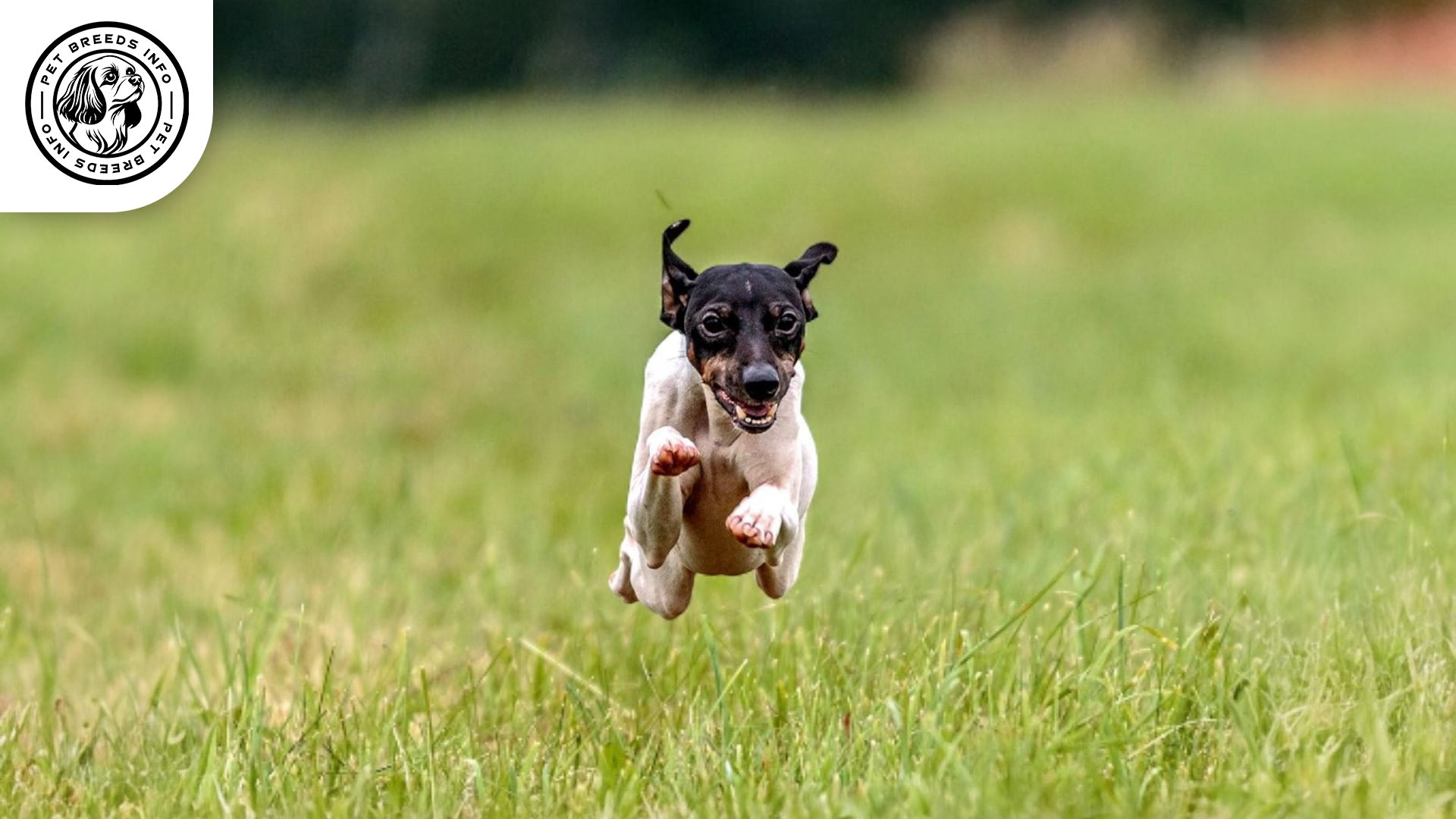
Personality and Temperament
The Japanese Terrier is highly intelligent and learns quickly, making it fairly easy to train. It has high energy levels and requires regular playtime and activity. This breed forms strong bonds with its owner and enjoys companionship, often displaying affection and loyalty. It is generally good with children and can get along well with other pets if socialized properly. However, due to its terrier instincts, it may exhibit a strong prey drive. The breed is sensitive to environmental changes and prefers a stable, calm home environment.
Read More: Greek Harehound Dog
Care and Maintenance Requirements
This breed requires moderate daily exercise, including short walks and play sessions. Due to its small size, it adapts well to apartment living but still needs indoor activity and mental stimulation. Its short coat requires minimal grooming; occasional brushing is sufficient to keep it clean. The Japanese Terrier is sensitive to cold weather, so protection is necessary in cold climates. Regular hygiene maintenance, such as nail trimming, ear cleaning, and dental care, is important to prevent health issues.
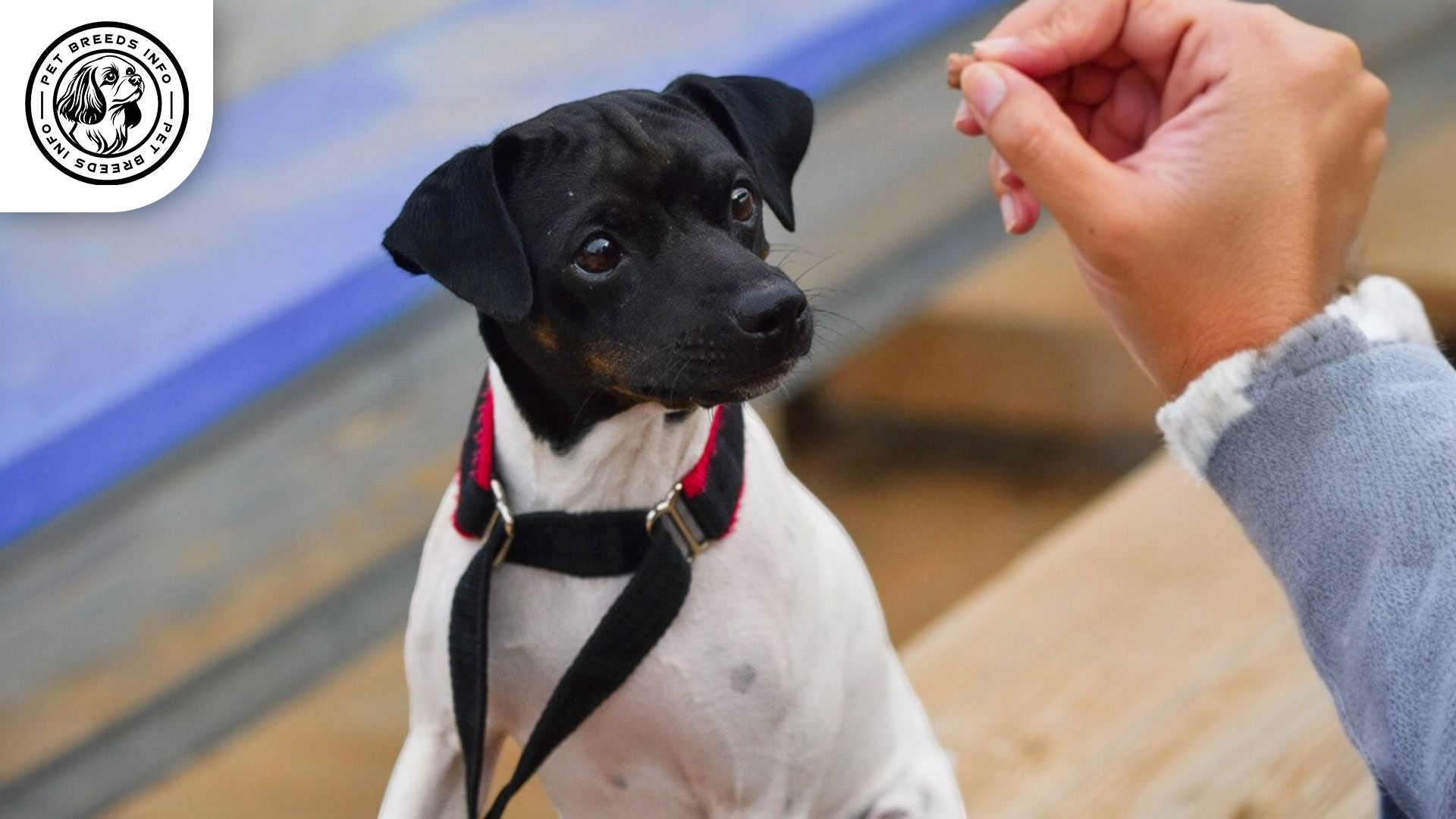
Diet and Nutrition
The Japanese Terrier thrives on a high-quality, balanced diet, which can include dry kibble, wet food, or a raw diet if properly formulated. It is essential to provide protein-rich food to support its energy needs. Avoid feeding harmful foods such as chocolate, onions, or high-fat table scraps. Small portion sizes, divided into two daily meals, help maintain a healthy weight.
Health and Common Medical Issues
The Japanese Terrier is generally a healthy breed, with an average lifespan of 12 to 15 years. However, it may be prone to hereditary issues such as patellar luxation and skin allergies. Regular veterinary check-ups, vaccinations, and parasite prevention help ensure a long, healthy life.
Read More: Hamiltonstovare Dog
Training and Behavior Management
This breed is highly trainable due to its intelligence and eagerness to please. Positive reinforcement methods work best, including treats and praise. Early socialization is crucial to curb excessive barking and timidness. Consistency and firm yet gentle training techniques help establish good behavior.
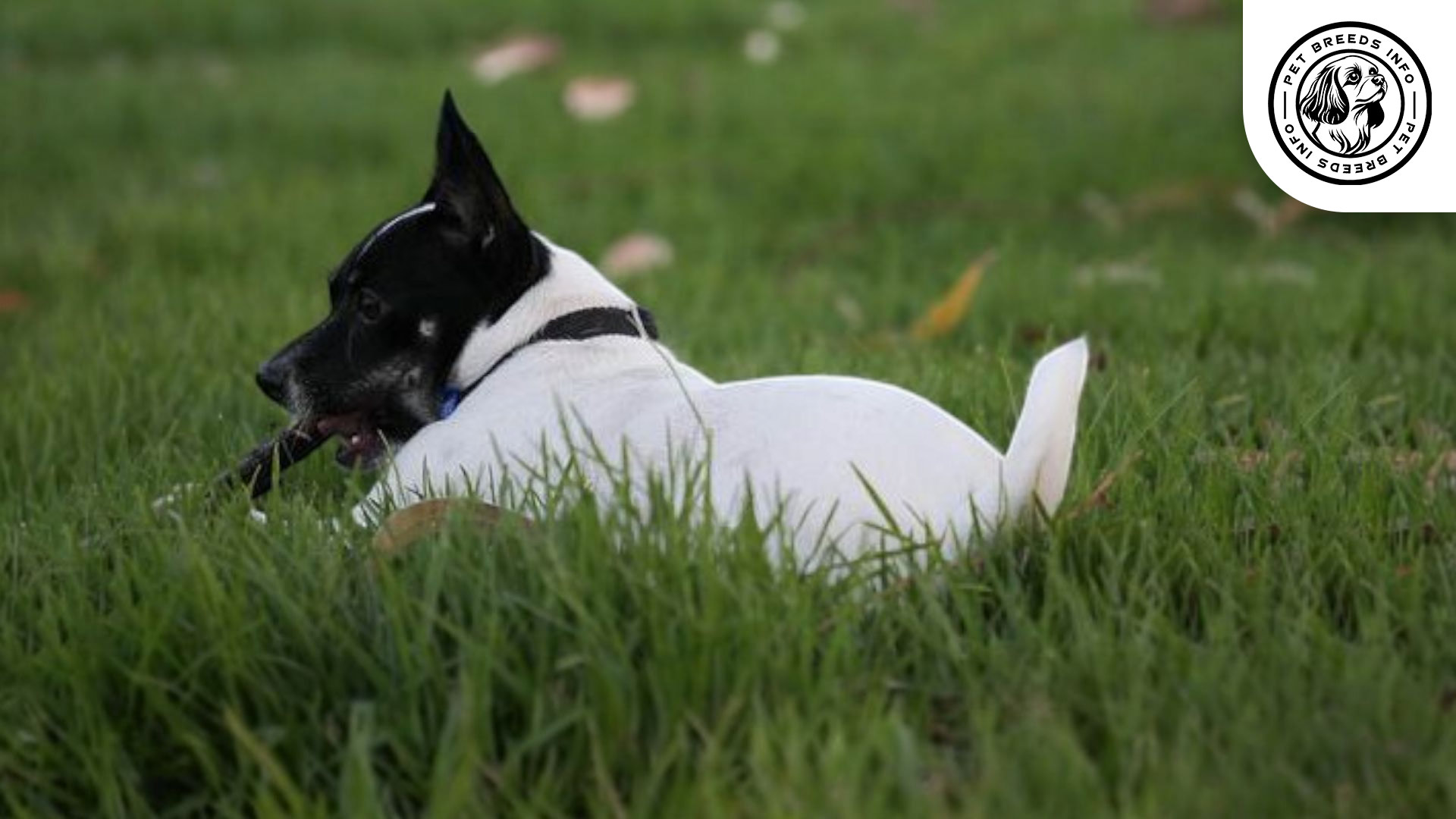
Interaction with Other Animals and Humans
The Japanese Terrier is affectionate and enjoys human companionship, making it suitable for both individuals and families. It generally behaves well with children but may be reserved around strangers. Early socialization helps it get along with other pets. While independent at times, it prefers regular interaction with its owners.
Price and Availability
Due to its rarity outside of Japan, purchasing a Japanese Terrier can be expensive, with prices ranging from $800 to $1,500. Adopting from reputable breeders or breed-specific rescue organizations is recommended to ensure ethical breeding practices. Prospective owners should research the breeder thoroughly before making a purchase.
Conclusion and Final Thoughts
The Japanese Terrier is an excellent companion dog for those who appreciate a small, intelligent, and active breed. It is best suited for owners who can provide daily interaction, mental stimulation, and moderate exercise. While easy to groom, this breed requires attention to health care, training, and socialization. Potential owners should consider its sensitivity to cold and potential hunting instincts before adopting. Overall, it is a loyal and loving pet that thrives in a caring home environment.
Read More: Hokkaido Dog
FAQ
Is the Japanese Terrier good for apartment living?
Yes, its small size makes it well-suited for apartments, but it still needs daily exercise and mental stimulation.
Does the Japanese Terrier require a lot of grooming?
No, its short, smooth coat requires minimal maintenance—occasional brushing is sufficient.
Is the Japanese Terrier easy to train?
Yes, it is intelligent and eager to learn, responding well to positive reinforcement techniques.
How does the breed behave with children?
It is generally good with children, but early socialization is recommended to ensure proper behavior.
